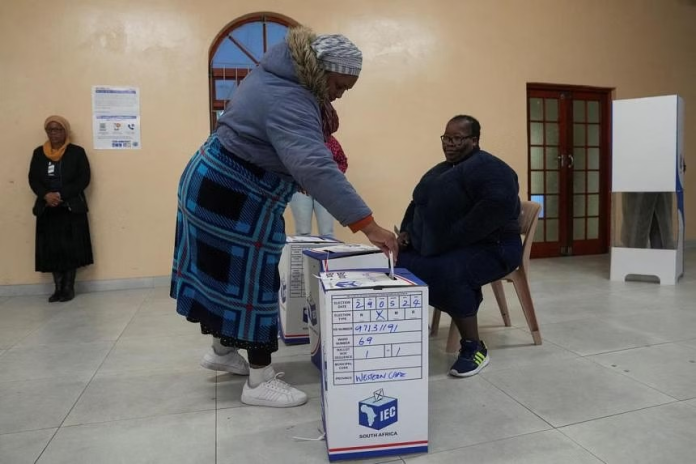South Africans began voting on Wednesday in an election considered the country’s most important in 30 years and one that could put the young democracy in uncharted territory, African media reported.
At stake is the three-decade dominance of the African National Congress party, which led South Africa out of brutal apartheid white minority rule in 1994. Now it has become the target of a new generation of disaffected people in a country of 62 million people, half of whom live in poverty.
Africa’s most developed economy has some of the world’s worst socio-economic problems, including one of the lowest unemployment rates at 32 per cent.
Lingering inequality, from which poverty and unemployment disproportionately affect South Africans, threatens to sweep away the party that promised to end it by overthrowing apartheid under the slogan of a better life for all.
Presidential party seeks victory
After six consecutive national election victories, several polls show support for the ANC ahead of the current election is below 50 per cent, an unprecedented drop. It could lose its majority in parliament for the first time, although it is expected to have the most seats.
Support is waning. In the last national election in 2019, the ANC won 57.5 per cent of the vote, its worst result to date.
South African President Cyril Ramaphosa, the ANC leader, has promised to “do better.” The ANC has asked for more time and patience.
Any change in the ANC’s position in power could have huge implications for South Africa. If it loses its majority, the ANC is likely to face the prospect of forming a coalition with other parties to stay in government and keep Ramaphosa as president. The ANC has never before had to participate in government.
South Africans vote for parties, not directly for president. Parties get seats in parliament according to their share of the vote, and these legislators choose the president after the election. Since 1994, the ANC has always had a majority in parliament.
The elections will be held on the same day in nine South African provinces, with some 28 million people registered to vote at more than 23,000 polling stations. Final results are expected by Sunday. Ramaphosa was due to cast his vote in the morning at a primary school in the Johannesburg township of Soweto, where he was born and which was once the epicentre of resistance to apartheid.
Voters vote with confidence
Samuel Ratshalingwa was among the first people in the queue in the chill of the early South African winter. He said:
“I take voting as something serious because as communities, it is difficult to complain about services when you have not voted. Our main issue here in our community is the lack of jobs. We have to use the vote to make our voices heard about this problem.”
The vote will illustrate the country’s contradictory nature, from the economic centre of Johannesburg – Africa’s richest city – to picturesque tourist Cape Town and the informal shantytowns on its outskirts. Millions of South Africans will vote in rural areas, still considered the heart of the ANC, and analysts do not rule out that the party could hold its majority given its decades of experience in government and unrivalled grassroots campaigning machine.
Although 80 per cent of South Africans are black, it is a multiracial country with significant numbers of whites, Indians, biracials and others. The country has 12 official languages.
